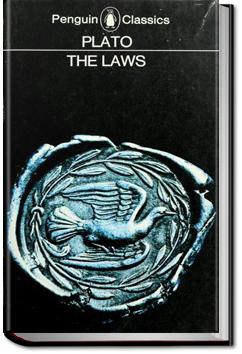UNLIMITED Audiobooks and eBooks
Over 40,000 books & works on all major devices
Get ALL YOU CAN for FREE for 30 days!
Laws
Plato
Book Overview:
Laws is Plato's final dialogue written after his attempt to advise the tyrant Dionysius II of Syracuse. The dialogue takes place between: an Athenian Stranger; the quiet Lacedaemonian Megillus; and the Cretan Cleinias. The Stranger asks whether humans live to be more effective at waging war or if there is something more important a legislator should seek to achieve. During their pilgrimage Cleinias discloses his role in the establishment of a new colony and the three discuss what would make the colony perfect including: location; a fixed population size; entitlement to land; the four economic classes; the restriction of retailers; a static system of music; the fair treatment of foreigners; defined punishments; and proper religious observance.
Laws is Plato's final dialogue written after his attempt to advise the tyrant Dionysius II of Syracuse. The dialogue takes place between: an Athenian Stranger; the quiet Lacedaemonian Megillus; and the Cretan Cleinias. The Stranger asks whether humans live to be more effective at waging war or if there is something more important a legislator should seek to achieve. During their pilgrimage Cleinias discloses his role in the establishment of a new colony and the three discuss what would make the colony perfect including: location; a fixed population size; entitlement to land; the four economic classes; the restriction of retailers; a static system of music; the fair treatment of foreigners; defined punishments; and proper religious observance.
How does All You Can Books work?
All You Can Books gives you UNLIMITED access to over 40,000 Audiobooks, eBooks, and Foreign Language courses. Download as many audiobooks, ebooks, language audio courses, and language e-workbooks as you want during the FREE trial and it's all yours to keep even if you cancel during the FREE trial. The service works on any major device including computers, smartphones, music players, e-readers, and tablets. You can try the service for FREE for 30 days then it's just $19.99 per month after that. So for the price everyone else charges for just 1 book, we offer you UNLIMITED audio books, e-books and language courses to download and enjoy as you please. No restrictions.
Try now for FREE!

"Love your service - thanks so much for what you do!"
- Customer Cathryn Mazer
"I did not realize that you would have so many audio books I would enjoy"
- Customer Sharon Morrison
"For all my fellow Audio Book & E-Book regulars:
This is about as close to nirvana as I have found!"
- Twitter post from @bobbyekat



Community Reviews
Platonic dialogues are a lot less fun when Socrates isn't around.
Ovo je najobimnije i posljednje napisano Platonovo djelo, a uz to je i jedan od rijetkih dijaloga u kome glavni lik nije Sokrat. Umjesto njega, ovdje se pojavljuje anonimni Atinjanin, koji svoju sliku idealne zajednice prezentuje jednom Krićaninu i jednom Lakedemonjaninu.
"Zakoni" se (ne) mogu posmat
Despite having been assigned it in my Classical Political Thought class, I only in the past few days finished reading Plato's Laws (apologies to Dr. Walsh). Which is a bit unfortunate, since it's bloody fantastic.
I confess to having had a bit of a "meh" relationship with Plato in the past. I mean, t
(One has to read The Laws AFTER reading The Republic) in order to see the Huge deference between them. The Laws is basically a correction and adding to what was missing in The Republic which was written decades before The Laws.
It shows in the book how Plato became wiser with age, more passionate an
There is a popular saying in the film world, that directors spend their whole careers making the same film over and over again. Plato spent his whole career working out the ideas laid out in Laws. Some of it is in the Republic, most of it can be found in other dialogues. Stray observation; why could
The Laws of Plato is not entirely laws. It is not entirely anything, really. It seems to be a nice collection of aphoristic sayings, wise and pithy truths, and overall a collection of legal requirements for a city whose regulation is the main focus of this work. Designing a city can be difficult, an
And then, as time went on, the poets themselves introduced the reign of vulgar and lawless innovation. They were men of genius, but they had no perception of what is just and lawful in music; raging like Bacchanals and possessed with inordinate delights—mingling lamentations with hymns, and paeans w